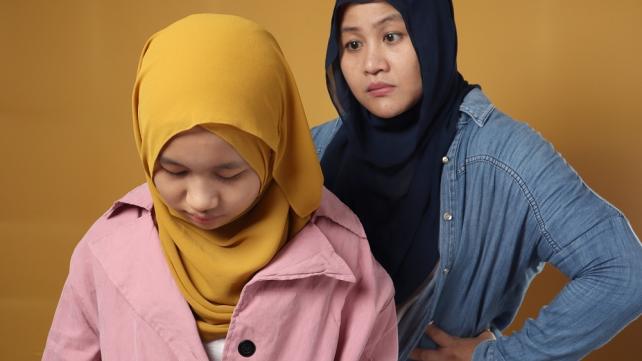
Having a stable, peaceful family life is crucial to children’s mental health. While almost every parent intends to interact with their children in a way that is supportive, kind, and gentle, it is not always easy. Kids’ behavior can be extremely challenging, and moms and dads don’t always have the mental strength to cope gracefully and wisely with annoying or challenging conduct. In fact, sometimes their patience is completely depleted due to life’s other demands, and they react to their children’s misbehavior in a way that is unproductive and even hurtful. What are today’s exhausted, overwhelmed parents to do?
I know there are many parenting books out there, each one promising to introduce methods that are guaranteed to work. As the mother of five kids, I’ve read many of them. Only a few stand out as being practical, easy to read and implement, and full of wisdom. How to Talk So Kids Will Listen and Listen So Kids Will Talk by Adele Faber and Elaine Mazlish is one of those books.
Originally written in 1980, How to Talk proposes timeless strategies that are still relevant in 2023. It is considered by many to be a classic parenting book, and there is a good reason for that. Its techniques are so useful and universally applicable that they have spawned workshops, videos, and classes all around the world. Parents can see that the book is not only easy to read but also intuitively appealing. “That makes so much sense! Why didn’t I think of that?” many find themselves saying.
The book is not too lengthy. It has only seven chapters and several cartoon drawings that exemplify real-life scenarios. Families will see themselves reflected in the pages of the book. Even though there was no internet or social media in 1980, the issues that the authors discuss are still relevant today. Faber and Mazlish discuss helping children deal with their feelings, engaging cooperation, alternatives to punishment, encouraging autonomy, praise, and freeing children from playing roles.
I first read this book when my oldest children were in elementary school. In fact, a group of us moms from our kids’ Islamic school met weekly to discuss the book and brainstorm on how to implement the techniques. That was over a decade ago, but I still implement many of the nuggets of wisdom I gleaned from How to Talk. My two eldest, who got used to seeing the book on my nightstand or the kitchen table throughout their youth, read it, too, probably because the cartoons appealed to them. To this day, when I do or say something inspired by Faber and Mazlish, my kids (now in their 20s) say, “Hey! You got that from “How to Talk So Kids Will Listen and Listen So Kids Will Talk!” As much as they tease me, they agree that the strategies work.
What I love most about the book is that it treats children with respect and proceeds with the assumption they are worthy human beings whose fears, preferences, and desires matter. There is love, wisdom, respect, and gentleness behind the techniques that the authors put forth. This aligns with our Islamic values. Prophet Muhammad, peace and blessings be upon him, said:
“Verily, Allah is gentle and He loves gentleness in all matters.”
(Bukhari, Muslim)
The Messenger of Allah was gentle with children, even when they made mistakes. The Companion Anas, may Allah be pleased with him, remembered:
“I served the holy Prophet for ten years. He never said ‘uf’ [an expression of dissatisfaction], nor did he ever ask me why I did this or did not do that.”
(Muslim, Abu Dawud)
While the book is sensitive to children’s needs, parents are recognized as authority figures whose job is to guide and educate. This book is not about letting kids have their way all the time, or being permissive. It’s about respecting children’s feelings and finding ways to accomplish what the adult (or society) deems necessary by inviting the child’s cooperation. It’s really a win-win situation for kids and parents when fewer struggles arise in response to parents’ expectations and requests. If you feel there is strife, arguing, frustration, and a lack of peace in your house, it is definitely worth reading How to Talk So Kids Will Listen and Listen So Kids Will Talk.
Laura El Alam is a freelance writer and editor and a first-generation American Muslim. She is the author of over 100 published articles and has written a children’s book, Made From the Same Dough, due to be released in 2023, inshaAllah. A wife and mother of five, Laura lives with her family in Massachusetts. You can visit her online at www.seaglasswritingandediting.com.



Add new comment